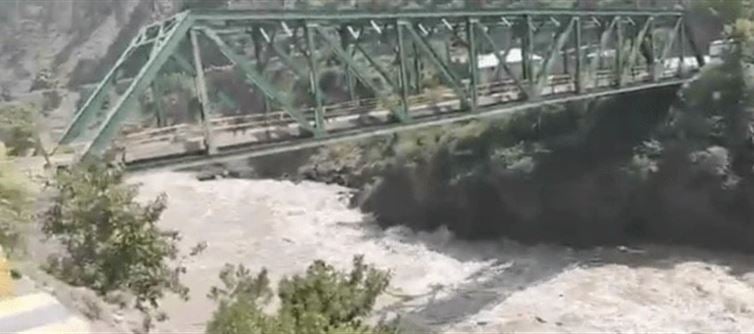
Residents, who are already tense following a week of increased tensions between india and pakistan, claim that india released the water without informing Pakistani authorities beforehand.
Locals from Muzaffarabad city to the Chakothi border watched in increasing dread as the river grew so quickly that mosques had to broadcast urgent warnings and emergency sirens had to sound. Families frantically fled to safer ground as whole villages along the riverbanks, including Hattian Bala, Ghari Dupatta, and Majhoi, were plunged into turmoil.
According to a resident of Ghari Dupatta, "this was completely unexpected," as mosque loudspeakers urged everyone to leave right away. "The fear is genuine. Nobody is aware of how awful things could get.
The Muzaffarabad government formally declared a water emergency in portions of PoK after confirming the extraordinary increase in water levels. According to reports, the unexpected deluge that swept through Chakothi from India's anantnag district serves as a sobering reminder of how closely geography and geopolitics are entwined in this unstable area. Videos from PoK that showed the Jhelum River roaring in full spate were widely shared on social media.
“India's reckless release of excess water into the Jhelum River from anantnag has dangerously raised water levels, threatening lives and livelihoods downstream. india should be dealt with accordingly and stop this water terrorism,” another Pakistani bewailed.
Pakistan asserts that India's rapid rise is not an accident but rather a calculated move as part of a larger plan to weaponize water flows in the wake of this week's pahalgam terror assault. "India's threat to halt the Indus Waters Treaty (IWT) was not idle talk," political expert Javed siddique said bluntly. The water release today sent a very obvious message.
Experts caution that if India's action is shown to be deliberate, it may further threaten the tenuous peace that the Indus Waters Treaty has maintained for more than 60 years, despite three wars.
Following the horrific pahalgam terror incident, which claimed the lives of 27 tourists and injured several others after Islamic terrorists opened fire on them after verifying their Hindu identities, india took a tough stand earlier this week by suspending the Indus Water Treaty.




 click and follow Indiaherald WhatsApp channel
click and follow Indiaherald WhatsApp channel